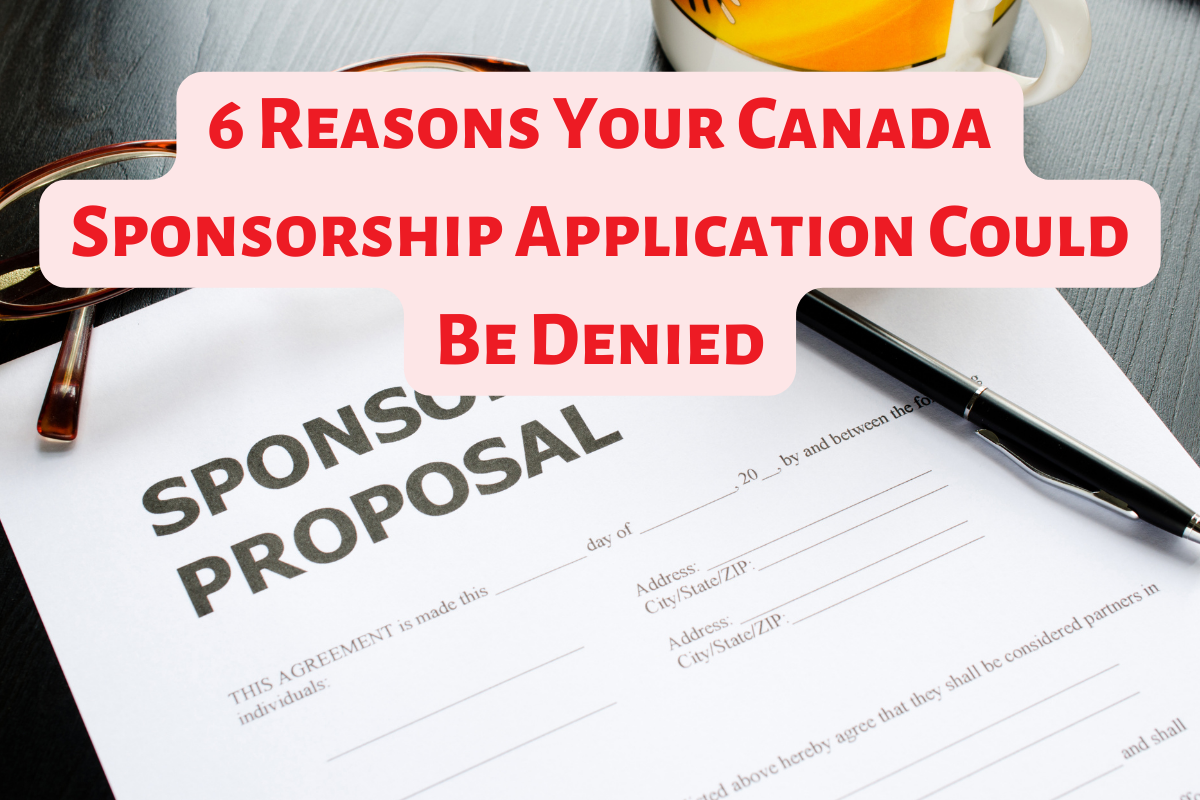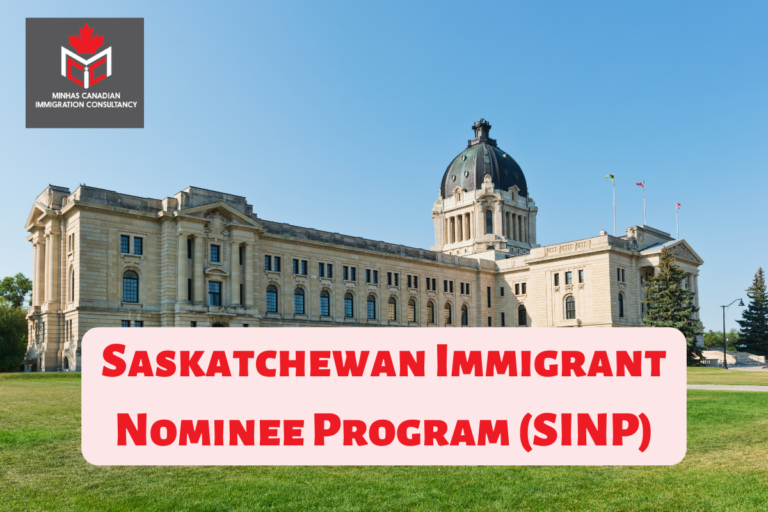Canada Spousal Sponsorship – 6 Reasons Your Canada Sponsorship Application Could Be Denied
Canada is a popular destination for immigrants who want to build a better life for themselves and their families. One way to immigrate to Canada is through sponsorship, where a Canadian citizen or permanent resident can sponsor a family member or spouse to come to Canada. However, not all sponsorship applications are approved. In fact, many are denied for various reasons. In this article, we will discuss six common reasons why your Canada sponsorship application could be denied.
Table of Contents
- Introduction
- Not Meeting the Eligibility Requirements
- Incomplete or Incorrect Application Forms
- Failure to Provide Sufficient Supporting Documentation
- Medical and Security Issues
- Previous Sponsorship Undertakings
- Misrepresentation or Fraud
- Conclusion
- FAQs
1. Introduction
Canada is known for its welcoming attitude towards immigrants, but that doesn’t mean that the process of immigrating is easy. One popular way to immigrate to Canada is through sponsorship, where a Canadian citizen or permanent resident can sponsor a family member or spouse to come to Canada. However, not all sponsorship applications are approved. In fact, many are denied for various reasons. This article will discuss six common reasons why your Canada sponsorship application could be denied, and what you can do to avoid these pitfalls.
2. Not Meeting the Eligibility Requirements
One of the most common reasons for sponsorship application denial is that the applicant does not meet the eligibility requirements. These requirements include age, relationship status, education, work experience, language proficiency, and financial resources. For example, if the sponsor does not earn enough income to support the sponsored family member, the application will be denied. It’s important to carefully review the eligibility requirements before submitting an application.
3. Incomplete or Incorrect Application Forms
Another reason for sponsorship application denial is incomplete or incorrect application forms. The government of Canada has strict requirements for sponsorship applications, and any errors or omissions can result in rejection. Make sure that you fill out all forms completely and accurately, and include all required documents.
4. Failure to Provide Sufficient Supporting Documentation
In addition to filling out the application forms correctly, you must also provide sufficient supporting documentation. This includes identification documents, birth certificates, marriage certificates, police certificates, and medical exams. Failure to provide these documents or providing incomplete or inaccurate information can result in the denial of your application.
5. Medical and Security Issues
All sponsorship applicants must undergo medical exams and security checks. If the applicant has a medical condition that is considered a risk to public health or safety, the application may be denied. Similarly, if the applicant has a criminal record or is considered a security risk, the application may be denied.
6. Previous Sponsorship Undertakings
If you have previously sponsored a family member to come to Canada and failed to fulfill your sponsorship obligations, your new sponsorship application may be denied. Make sure that you fulfill all obligations from previous sponsorships before submitting a new application.
7. Misrepresentation or Fraud
Finally, misrepresentation or fraud can result in the denial of your sponsorship application. This includes providing false information, using fraudulent documents, or omitting important information. If you are found to have committed misrepresentation or fraud, you may be barred from entering Canada for a period of time.
8. Conclusion
Sponsoring a family member or spouse to come to Canada can be a complicated process, but it’s worth it to be able to reunite with your loved ones in a new country. However, it’s important to be aware of the potential pitfalls that can result in the denial of your sponsorship application. By carefully reviewing the eligibility requirements, filling out the application forms accurately, providing sufficient supporting documentation, and being honest and transparent throughout the process, you can increase your chances of a successful sponsorship application. Remember to also fulfill all obligations from previous sponsorships and avoid any misrepresentation or fraud. By taking these steps, you can give yourself the best chance of successfully sponsoring a family member or spouse to come to Canada.
9. FAQs
- Can I appeal a denied sponsorship application?
Yes, you can appeal a denied sponsorship application. However, you must have valid reasons for doing so and the appeal process can be lengthy and complex.
- How long does it take to process a sponsorship application?
The processing time for a sponsorship application can vary depending on a number of factors, including the type of sponsorship and the country of origin of the sponsored individual. Processing times can range from a few months to over a year.
- Can I sponsor a non-family member to come to Canada?
Yes, there are certain programs that allow you to sponsor non-family members, such as refugees or humanitarian cases. However, the eligibility requirements and application process may be different from family sponsorship.
- What should I do if I make an error on my application form?
If you make an error on your application form, you should correct it as soon as possible and inform the government of Canada. Failure to do so could result in the denial of your application.
- Can I hire an immigration consultant to help with my sponsorship application?
Yes, you can hire an immigration consultant to help with your sponsorship application. However, make sure that the consultant is licensed and reputable, and be aware of any additional fees that may be charged.
- What happens if my sponsored family member or spouse fails to meet the residency obligation?
If your sponsored family member or spouse fails to meet the residency obligation, they could lose their permanent resident status and be removed from Canada. It is important to ensure that your sponsored individual understands their obligations and takes the necessary steps to fulfill them.
- Can I sponsor a family member or spouse who is already in Canada?
Yes, you may be able to sponsor a family member or spouse who is already in Canada on a temporary basis. However, eligibility requirements and application processes may differ from those of outside-Canada sponsorships.
- What is the difference between a sponsorship application and an immigration application?
A sponsorship application is a type of immigration application where a Canadian citizen or permanent resident applies to bring a family member or spouse to Canada. An immigration application, on the other hand, is a type of application where an individual applies to come to Canada for reasons such as work or study.
- Can I withdraw my sponsorship application?
Yes, you can withdraw your sponsorship application at any time before a decision is made. However, if you withdraw your application after your sponsored individual has already received permanent resident status, you may still have obligations toward them.
- Can I reapply after a denied sponsorship application?
Yes, you can reapply after a denied sponsorship application. However, it is important to identify and address the reasons for the initial denial of your new application to increase your chances of success.




